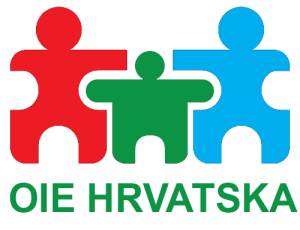| THURSDAY, 25 May 2023 | |
| 14:00 - 17:00 | Registration at the Elaphusa hotel reception |
| 17:00 - 18:00 | Welcome drink & snack |
| CONFERENCE HALL BRAČ | |
| moderator: Marko Perožić, Deputy Editor In Chief, TV Bloomberg Adria | |
| 18:00 - 18:30 | OPENING CEREMONY AND WELCOME SPEECHES |
| Maja Pokrovac, Managing Director, Renewable Energy Sources of Croatia | |
| Walburga Hemetsberger, CEO, SolarPower Europe | |
| Prof. dr. sc. Sandra Voća, Vice Dean for Teaching and Study Programs University of Zagreb, Faculty of Agriculture | |
| Katarina Marčić, Municipality Mayor of Bol | |
| Mate Šimundić, President of County Assembly, Split-Dalmatia County | |
| Karlo Ressler, Member of the European Parliament /video speech/ | |
| Ivo Milatić, Envoy of the Prime Minister of the Republic of Croatia | |
| 18:30 - 18:45 | Presentation: THE ROAD TOWARDS 2050 IS PAVED WITH SOLAR ENERGY |
| Walburga Hemetsberger, CEO, SolarPower Europe | |
| 18:45 - 19:45 | panel 1: THE ROLE OF PUBLIC POLICIES FOR STRONGER DEVELOPMENT OF PV PROJECTS |
| Walburga Hemetsberger, CEO, SolarPower Europe | |
| Ivo Milatić, Envoy of the Prime Minister of the Republic of Croatia | |
| Tonči Glavinić, Advisor to the Minister of Physical Planning, Construction and State Assets | |
| Ivica Jujnović, Head of the Service for Financing and Support of Road Infrastructure Projects, Ministry of the Sea, Transport and Infrastructure | |
| Mladen Pavić, State Secretary, Ministry of Agriculture | |
| moderator: Maja Pokrovac, Managing Director, Renewable Energy Sources of Croatia | |
| 20:00 | Dinner |
| from 22:00 | Sunny Days party |
| FRIDAY, 26 May 2023 | |
| CONFERENCE HALL BRAČ 1 | |
| moderator: Blaženka Leib | |
| 10:00 - 10:15 | Presentation: RENEWABLE ENERGY POLICIES AND RENEWABLE ACCELERATION AREAS |
| Ignacio Asenjo, DG ENER, European Commission | |
| 10:15 - 11:15 | panel 1: „GO-TO" AREAS |
| Dalibor Hatić, General Director, Oikon - institute of Applied Ecology | |
| Iva Hudan, Advisor to the Minister of Physical Planning, Construction and State Assets | |
| Tomislav Čeko, Head of Forestry Sector, Ministry of Agriculture | |
| Ivica Rovis, Chief Adviser to the Minister of of the Sea, Transport and Infrastructure | |
| moderator: Nikola Pletikosa, Project Manager, Encro | |
| 11:15 - 11:35 | Coffee break |
| 11:35 - 11:50 | Presentation: AGRI-PV AS A WAY OF DUAL USE OF AGRICULTURAL LAND |
| Mislav Kontek, Technology Development Manager, EnergoVizija | |
| 11:50 - 12:50 | panel 2: AGRI-PV PROJECTSS FOR AGRICULTURAL AND ENERGY PRODUCTION |
| prof. dr. sc. Marko Karoglan, University of Zagreb, Faculty of Agriculture | |
| Mario Turković, CEO, EnergoVizija | |
| Ante Merčep, CEO, Croatian Green Energy | |
| Darko Grivičić, Chairman of the Supervisory Bord, Croatian Chamber of Agriculture | |
| Lana Bačura, Head of Service for Development of Agriculture and Forestry Competitiveness, Ministry of Agriculture | |
| moderator: Goran Beinrauch, Gospodarski list | |
| 12:50 - 14:30 | Lunch |
| 14:30 - 14:45 | Presentation: PRODUCTION AT THE PLACE OF CONSUMPTION - PRODUCE AND CONSUME YOUR OWN ELECTRICITY, IT IS ALWAYS MOST FAVOURABLE |
| Ines Ban-Kolić, PV Support Specialist at E.ON | |
| 14:45 - 15:45 | panel 3: PRODUCTION AT THE PLACE OF CONSUMPTION |
| Mate Rebić, Partner, Struya | |
| Matej Cvitanović, Specialist in the Network Access Department, HEP-ODS | |
| Zdravko Ivčić, Project Development Manager, HELB | |
| Miloš Kostić, CEO, MT-Komex | |
| Josip Kožul, Chief Operating Officer, Emerus | |
| Domagoj Badanjak, CEO and Co-Founder, AleDo TECH | |
| moderator: Toni Lončar, Minergy | |
| 15:45 - 16:00 | Presentation: THE ROLE OF ENERGY STORAGE IN THE ENERGY TRANSITION |
| doc. dr. sc. Ninoslav Holjevac, University of Zagreb, Faculty of Electrical Engineering and Computing | |
| 16:00 - 17:00 | panel 4: HYBRID SYSTEMS AND STORAGE OF PRODUCED ENERGY |
| Goran Fržop, Project Manager RES, TEC OI | |
| Igor Šumonja, Head of Grid Users and Connections, HOPS | |
| Željko Šmitran, CEO, Ind-Eko | |
| Ivana Chaux-Jukić, CEO, Active Solera | |
| Marin Cerjan, Executive Director for Power and Gas, Petrol | |
| Karla Janeš Mesarić, Business Development Balkan Region, Rimac Energy | |
| moderator: dr. sc. Josip Tošić, Toska | |
| CONFERENCE HALL BRAČ 2 | |
| moderator: Regina Zubanović | |
| 10:00 - 10:15 | Presentation: THE EXPECTED CONTRIBUTION OF THE NEW SLOVENIAN LAW TO UTILITY SCALE SOLAR |
| Nina Hojnik, Director, Slovenian Photovoltaics Association | |
| 10:15 - 11:15 | panel 1: REGIONAL SITUATION IN PV PROJECTS |
| Danijela Isailović, General Manager, RES Serbia | |
| Nina Hojnik, Director, Slovenian Photovoltaics Association | |
| Ramiz Kikanović, Member of the Management Board, Operator for renewable energy sources and efficient cogeneration, BiH | |
| Ivan Mrvaljević, Director of the Directorate for Development and Investment, EPCG, Montenegro | |
| Igor Aleksandrovski, Managing Partner, Law firm Apostolska, Aleksandrovski & Partners | |
| moderator: Saša Ćeramilac, Al Jazeera | |
| 11:15 - 11:35 | Coffee break |
| 11:35 - 11:50 | Presentation: PPAs AND FINANCING INVESTMENTS INTO RES |
| Stefano Miriello, Policy and Business Development Advisor, RE-Source Platform | |
| 11:50 - 12:50 | panel 2: ENERGY CHALLENGES IN INDUSTRY |
| Richard Pascal, TotEm | |
| Marko Lasić, CEO, KOER | |
| Tomislav Ćurković, CEO, Encro | |
| Miroslav Božić, Advisor To The Board at Croatian Sugar Industry J.S.C. | |
| Nataša Putak, Go-to Market Expert, Energy Infrastrukture Solutions, E.ON | |
| Velimir Vilović, Board Member, NEXE | |
| moderator: Tomislav Sadrić, Law firm Batarelo, Dvojković & Vuchetich | |
| 12:50 - 14:30 | Lunch |
| 14:30 - 14:45 | Presentation: HOW TO FINANCE SOLAR POWER PLANTS, FROM 1 kW to 1 GW? |
| prof. dr. sc. Neven Duić, University of Zagreb, Faculty of Mechanical Engineering and Naval Architecture | |
| 14:45 - 15:45 | panel 3: FINANCING PV PROJECTS |
| Svitlana Pyrkalo, EBRD | |
| Slađana Ćosić, Head of the EIB Group Office in Croatia | |
| Ante Krečak, Head of Project finance, Erste bank | |
| Darijan Radić, Specialist in the Solar Financing | |
| moderator: Ivan Kovačev, Intercapital investment banking | |
| 15:45 - 16:00 | Presentation: ENERGY COMMUNITIES - THE KEY TO STRENGTHENING THE ROLE OF CIVIL ENERGY IN THE EU ENERGY TRANSITION |
| dr. sc. Marko Mimica, Faculty of Mechanical Engineering and Naval Architecture | |
| 16:00 - 17:00 | panel 4: ENERGY COMMUNITIES |
| Damir Miljević, Member of Managing Bord, RESET, BiH | |
| Zoran Kordić, Chief Executive Officer, Green Energy Cooperative | |
| Saša Petrović, Project Manager, Energy Cooperative ELEKTROPIONIR, Serbia | |
| Ester Maijs, Junior CoP Manager, Energie Samen | |
| Stanislas d'Herbemont, Development Manager, REScoop European federation of citizen energy cooperatives | |
| moderator: dr. sc. Marko Mimica, Faculty of Mechanical Engineering and Naval Architecture | |
| CONFERENCE HALL KORČULA | |
| 14:30 - 16:00 | Round table: AGRI-PV PROJECTS FOR AGRICULTURAL AND ENERGY PRODUCTION |
| moderator: Mislav Kontek, EnergoVizija | |
| SATURDAY, 27 May 2023 | |
| 8:00 - 18:30 | Networking trip |
SUNNY DAYS
May 25-26, 2023
Bol, island Brač,
Hotel Elaphusa
The SUNNY DAYS conference is for everyone whose activities aim to better utilise the potential of solar energy.
Be one of them!
Registration until May 15th
280€ + VAT
Registration from May 15th
330€ + VAT
For members of RES Croatia
220€ + VAT
Program
Presentations and panels
The role of public policies for stronger development of solar projects /panel/
Croatia and neighboring countries have great potential for using solar energy. In fact, the untapped solar potential in this region is among the best in Europe! However, the share of realized solar plants in Croatia is still below 1 percent. The European Union's goal of achieving 45% renewable energy by 2030 will result in a significant increase in solar projects. Though, it is crucial to take measures to ensure that this growth can be realised, such as future-proof networks, simplified licensing, skilled workforce, resilient supply chains and a stable regulatory environment that can attract investors. What needs to be changed in order to speed up and strengthen the development of solar projects in accordance with the set national and European goals? Solar energy has great potential for the development of local companies, as well as for decarbonisation and decreasing dependence on energy imports.
„Go to“ areas /presentation/
With the European Green Plan, the European Union has set an ambitious goal of reducing emissions by at least 55% by 2030 compared to 1990 levels. These goals have become obligations embedded in the first European climate regulation. The European Commission has adopted Fit for 55, the cornerstone of the European Green Deal, as a significant, cross-sectoral package detailing binding reduction actions. Also, the European Commission adopts the REPowerEU Plan - joint European action for more affordable, safer and more sustainable energy with a series of measures. Among other things, a much faster dynamic of the realization of RES projects is foreseen. SolarPower Europe warns that the goals for solar power plants are insufficiently ambitious, and the Commission issues a Recommendation on speeding up license issuance procedures for RES projects and a simpler procedure for entering into energy purchase contracts, as well as a Proposal to amend some related directives. The recommendation also covers determination of suitable land and sea areas for RES projects, the so-called GO-TO zones, which member states will need to establish on their territory. The new legislation will be officially adopted and enter into force in the form of "The Recast Renewable Energy Directive III ("RED III"), after which the procedures for issuing permits for RES projects will be easier and faster.
„Go-to“ areas /panel/
The European Union, motivated by the goal of achieving energy independence, presented the initiative to establish a "Go-to" zones as part of the REPower EU plan. These are zones where the faster and simpler implementation of RES projects will be enabled within a year, without neglecting environmental protection. Each member state should determine its "go-to" zones and prepare a legal framework for them. RES Croatia has therefore started the preparation of an expert basis for determining such areas in Croatia, which can be the basis for future planning. Locations suitable for the development of Go-to zones were selected by RES Croatia according to attractiveness criteria, such as proximity to the transmission network, traffic and infrastructure corridors, existing devastated areas such as abandoned exploitation fields, rehabilitated waste disposal sites, and the like, and repulsion criteria, such as proximity to protected nature areas and ecological networks, cultural heritage and the like.
Agri-PV as a form of dual use of agricultural land /presentation/
Agri-PV is an innovative technology that combines agricultural production and the generation of renewable energy on the same land. This approach enables a more efficient use of land, while at the same time improving the energy sustainability of agricultural holdings. The implementation of Agri-PV systems can bring significant economic benefits to farmers, including the reduction of energy costs and additional income from the sale of excess energy. Also, such systems can improve the microclimatic conditions for plantations, thus regulating the temperature, reducing evaporation, improving the water regime of the soil and protecting against bad weather. Agri-PV represent a promising solution for contemporary challenges in agriculture - economic sustainability, climate change and energy efficiency.
Agri-PV for agricultural and energy production /panel/
The sectors of agriculture and energy have great potential for cooperation, and Agri-PV is one way of symbiosis between the agricultural industry and renewable energy sources. Their application is increasingly widespread in EU countries and existing examples show good results. What are their specific features compared to other photovoltaic systems? How are they defined by the legislative framework? What is their potential in Croatia? What are the benefits they bring to agricultural production and what are the expert recommendations regarding the selection of suitable agricultural crops and areas for their application? Why and how to invest in Agri-PV projects and what technical conditions must be met for their design? What should farmers know about Agri-PV?
Production at the place of consumption – produce and consume your own electricity, it is always most favourable /presentation/
In order to increase the flexibility of the electric power system, we must assess our needs and establish goals for increasing the flexibility of renewable energy sources usage. It is necessary to enable the introduction of new support programs, especially for the management of electricity consumption and storage. One example is the application of the closed distribution system model in ensuring the energy self-sufficiency of business systems. The active customer is the centre of the energy transition and should become part of the change. Information and education are paramount for this.
Production at the place of consumption /panel/
What are the benefits of photovoltaic power plants for your own needs? In recent years, we have witnessed an increase in investments in photovoltaic power plants, how does their integration affect the development of the power grid? What offer self-sufficiency models for business systems on the Croatian market and what are the financing models of photovoltaic power plant projects for own needs?
The role of energy storage in the energy transition /presentation/
A brief overview of different types of energy storage and their applications in power systems. The role of energy storage in distribution and transmission power networks and their role in ensuring the continued development of the energy transition with an emphasis on accelerating the development of RES and further electrification of the heating and transport sectors. The importance of auxiliary services that energy storage can provide with regard to their operation and differences depending on ownership.
Hybrid systems and storage of produced energy /panel/
The EU's ambitious plans to increase higher renewable energy share in all sectors emphasize the growing need for the use of electrical energy storage systems, which are important for the integration of produced energy and the balancing of the power system. New technologies and the battery storage are not fully legally defined either at the European or national level. How will the battery storage system affect power grids? What is the role of battery storage of produced energy in a hybrid system? How to ensure the bankability of the battery storage system and investments in energy storage projects?
The expected contribution of the new Slovenian law to utility scale solar /panel/
Presentation of the draft law on easier marketing of renewable energy sources from the sun and wind, the purpose of which is to remove most of the existing obstacles that prevent the development of large projects of renewable energy sources in Slovenia. What are the main news and what is the focus on the role of local authorities according to the new draft law?
Regional situation of solar projects /panel/
The South-East Europe, thanks to its geographical position, has one of the greatest potentials for the use of solar energy in Europe. It is a real gold mine waiting to be exploited. The potential benefits are manifold. By developing solar energy, the Balkans reduce their carbon footprint, promote energy independence, and economic growth. There are numerous challenges on this path, from the complexity of the regulatory framework to the financing model and the limited capacity of the existing electrical energy infrastructure. Can the development and use of solar energy be catalysts for cooperation, transcending borders in a common mission to reduce dependence on fossil fuels?
Power Purchase Agreements and financing of investments in renewable energy sources /presentation/
In the proposed reform of the electricity market model, the European Commission has set Power Purchase Agreements (PPA) as an extremely important tool for achieving the goals of energy security for citizens and industry. PPAs are increasingly popular in Southeast Europe as well, and energy buyers in the region have recognized the value of long-term purchases of green renewable energy directly from producers at pre-agreed prices. Such a form of purchase agreement brings multiple benefits to buyers of renewable energy and its producers.
Energy challenges in industry /panel/
Although the last energy crisis made a significant impact on everyone, traditional manufacturing industries with high electricity consumption have been hit especially hard. The methods adapted by these industries in face of new energy challenges, additional adjustments which may be undertaken in order to achieve energy resilience and how these industries can be helped in dealing with such challenges are the main topics that will be discussed on this panel. In order to make the discussion as interesting as possible, we have invited representatives of manufacturing industries, as well as developers, entrepreneurs and energy services providers.
How to finance solars, from 1kW to 1GW? /presentation/
The financing of larger solar projects today goes through the FiP model, but a transition to CfD and PPA is expected according to the announcements of the electricity market reform. These mechanisms make investments safe and bankable. Integrated solar power plants can be financed in the self-consumption regime.
Project financing /panel/
A sustainable financial structure, along with legal safety and simplified administrative processes, is one of the key elements for the successful realization of projects. Financial institutions recognize the great potential of solar energy and often advise investors along with financing. They monitor legal changes and adapt to the requirements of the energy transition. What kind of projects do banks and funds invest in in Croatia, but also in other countries, and what are their criteria? What is needed for greater engagement of capital?
Energy communities - the key to strengthening the role of civil energy in the EU energy transition /presentation/
Energy communities can significantly accelerate the integration of renewable energy sources. However, numerous regulatory shortcomings still stand in the way of realizing the full potential of energy communities. Through the Horizon Europe Communitas project, an attempt is made to develop an optimal regulatory and financial framework and to provide technical support to citizens when establishing and managing an energy community.
Energy communities /panel/
Energy communities and local self-government units have a significant role in the energy transition and can be a key component for accelerating the integration of renewable energy sources, especially through the implementation of solar energy projects. Therefore, it is important to discuss the regulatory, social and technical conditions that are the basis for the successful implementation of energy communities. It is necessary to educate citizens and encourage them to make joint investments in RES projects and provide them with a simpler and more accessible way of implementing projects. There are numerous examples of good practice in EU countries from which we can learn how to successfully use energy communities to involve citizens in the energy transition.

Accommodation
You can book accommodation HERE and you get a 35% discount on the regular prices in Bluesuns hotels Elaphusa**** and Bonaca*** .
Conference participants can use discounted prices from May 22 until Jun 6.
How to get to Bol?
- By catamaran: Split - Bol
- By ferry: Split - Supetar (40 min. drive to Bol)
- By plane: Zagreb - Brač airport *on Wednesdays and Saturdays (19 min. drive to Bol)
Check the sailing schedule at Jadrolinija, and the flight schedule at Croatia Airlines.
EXCURSION May 27, 2023 at a price of EUR 93
We invite you to join the networking excursion on May 27.
*The price of 93 EUR is paid at the reception when checking in to the hotel.
Here is what we have prepared for you:
08:30 Departure from Bol
09:15 Arrival in Pučišća:
- visit the Stonemasonry School - the only one in this part of Europe that teaches stone processing with ancient Roman hand tools
- tour with a presentation and expert guidance from a school representative
- walk to the small chapel – visit an exhibition of miniatures made of Brač stone
11:15 Departure to Škrip:
- visit the Olive oil Museum - tasting of olive delicacies
- visit the Island of Brač Museum
13:00 Departure for Vidova Gora – the highest peak on the Brač island and the highest peak on the Adriatic islands
13:35 Arrival at Vidova Gora
14:20 Departure for OPG Gažul where lunch is at 15:00
17:30 Departure for Bol
18:00 Arrival in Bol
We invite you to join the networking excursion on May 27.
*The price of 93 EUR is paid at the reception when checking in to the hotel.
Here is what we have prepared for you:
08:30 Departure from Bol
09:15 Arrival in Pučišća:
- visit the Stonemasonry School - the
only one in this part of Europe that
teaches stone processing with ancient
Roman hand tools
- tour with a presentation and expert
guidance from a school representative
- walk to the small chapel – visit an
exhibition of miniatures made of Brač
stone
11:15 Departure to Škrip:
- visit the Olive oil Museum - tasting of
olive delicacies@
- visit the Island of Brač Museum
13:00 Departure for Vidova Gora – the highest
peak on the Brač island and the
highest peak on the Adriatic islands
13:35 Arrival at Vidova Gora
14:20 Departure for OPG Gažul where lunch is
at 15:00
17:30 Departure for Bol
18:00 Arrival in Bol
REGISTRATION FORM
By using this form, you agree to Google reCAPTCHA, confirm that you are familiar with the RESC Privacy Policy and consent to the collection and processing of personal data.





